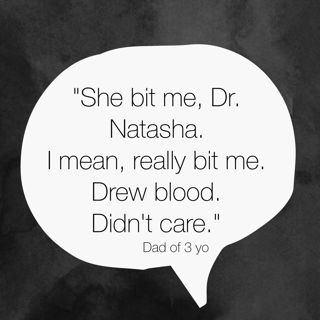It seems to happen overnight. A previously pensive and peaceful preschooler lashes out. From biting at daycare to excluding a sibling from play, parents are often caught off guard when they hear or see their preschooler being mean.
It’s important for us to remember that being involved in conflict is common as kids are learning to socially interact with others. No parent intentionally cultivates or creates mean behavior in their young child. That being said, when a preschooler is mean, identifying and responding correctly to pre-bullying behavior is critical. Kids need our help to learn proper social skill development in order to prevent the development of true bullying behavior.
The good news is that teaching young children non-aggressive conflict resolution can be done.
Why are preschoolers mean?
At its most basic, physical/verbal aggression is a behavior that is observed and repeated as a test of social utility. In other words, I saw Jonny yell at Sally and she dropped her toy. I want James’ toy, so let me try yelling at James. Kids are simply figuring out easy ways to get what they want thorough social trial and error.
Where this gets confusing is when we know our child understands rules of polite social interaction and chooses not to follow them.
It is clear that a preschooler has the ability to retain information and verbalize rules. For example, she can easily announce, “We don’t hit friends.” But even though a preschooler may be able to tell you, “We don’t hit friends,” child development reminds us that the emotional/impulsive part of the brain is still dominant. In the heat of the moment of fear, stress, or anger; emotions win.
And as any parent of a three-nager can attest, aggression often results.
Relational aggression (exclusion or rumor starting) begins to increase near the age of 5 years. At this point the emotional brain is still dominant, but the child has better language skills and more observational experience. Interestingly, researchers believe siblings relationships and media exposure significantly contribute to these behaviors.
What can I do if my child is being mean?
Here are some tips on how to successfully defuse and educate these challenging situations.
If you witness aggression, intervene immediately. If your child is being hurtful towards others, you must intervene. Be prepared to calmly approach and stop the hurtful action, turning the majority of your attention toward the one who was hurt. If the aggression is towards you, simply stand up and walk away. Relational aggression needs to be taken as seriously as physical aggression.
Define the emotion, and set a limit. Remember the action of aggression is most often a reaction to emotion. Rather than focusing only on the act itself, define the emotion that led to the behavior. Once the situation has been defused, consider saying something like, “You look angry. It is OK to be angry, but we don’t hit.”
Reinstate the problem and find a solution together. Provide the preschooler acceptable ways to solve problems. This becomes a backbone to conflict resolution techniques throughout early childhood. For example, “He took your toy. That made you angry. Is there another way to play with the toy?” Look at this great post from the Education Development Center for role playing ideas to encourage problem solving.
Recognize triggers. Everyone has their anger triggers. Preschoolers are no exception. If you know that your child gets short-tempered if hungry or tired, for example, take special measure to avoid the situations that may be upsetting.
Teach empathy. Kids learn empathy by watching others and by how they are treated themselves. Model kindness everyday in the relationships with your child and your adult peers. Create opportunities to talk about caring for others. Some great tips and conversation starters to cultivate empathy can be found in from the Harvard Graduate School of Education’s “Making Caring Common” project.
Reduce the violence dosage. If you are seeing increasing aggressive behavior in your child, pay special attention to the quality and quantity of media they may be viewing. Even seemingly educational programs have been associated with an increase in aggressive behavior (look at this interesting study.) Of course, protect your child from violent imagery in news programs or video gaming. And never retaliate with physical punishment.
When does normal preschool aggression cross the line to true bullying behavior that needs professional help?
If a child’s aggression is significant enough that you avoid being around other kids, it interferes with his learning or exploration, or if he is acting aggressive after a significant life change or event; it may be time to seek professional help. In addition, consider talking with your pediatrician if your child’s behavior seems increasingly reckless, if she is getting more aggressive in her pretend play, or if her aggression seems increasingly unprovoked. These may be signs of significant fear or anxiety in young children.





